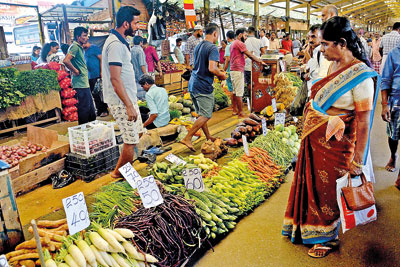News
CPC decision will trigger next wave of price hikes

Yet another wave of price hikes has been set in motion with the Lanka Indian Oil Company increasing fuel prices while the state-run Ceylon Petroleum Corporation is also indicating an upward revision of prices.
Although the LIOC fuel price hike has led to a marginal increase in the prices of goods and services, a noticeable chain reaction will be seen only if the CPC follows suit, traders say.
Public transport providers and goods transporters say they will raise fares once the CPC increases fuel prices.
The CPC initially said it would not increase its fuel prices, but later indicated it would be compelled to announce a price hike, claiming its losses were increasing after the LIOC price hike, with motorists preferring to visit CPC sheds to buy fuel. Because of the subsidy, the larger the volume of diesel the CPC sold, the bigger the losses it would incur, CPC officials said.
The LIOC increased the price of a litre of 92 Octane Petrol by Rs 7 from Rs 177 to Rs 184 and the price of auto diesel by Rs 3 — from Rs. 121 to Rs 124. 
| Container transporters work out price formula The Association of Container Transporters (ACT) has decided to increase rates due to recurring fuel price hikes. | |
Meanwhile, a cross section of lower and middle income families the Sunday Times spoke to said although prices of goods and services had increased their income had not.
Sudharshani Rajapaksha from Wattala said her husband is a labourer and life was hard for them.
She said two families lived in her house and since her husband’s income was not enough to provide for all five of them she started a string hopper business but since prices of ingredients had increased that too was running at a loss.
She said they had two outstanding electricity bills of Rs 12,000 and 15,000 to be paid too.
A state bank employee complained that his daily expenditures had increased too. He said he now spent Rs. 1500 on his daily needs, including his lunch from an eatery and travel expenses, though a few months ago he spent only about Rs 500.
He said he had cut down on extra expenditures and urged the Government also to do so. He said by increasing the local production and producing locally the items the country imported, the government could save more dollars and increase its foreign reserves.Owners of restaurants, small eateries and retailers also had similar tales of woe.
N B Jayantha, the owner of a popular bath kade in Nittambuwa, said his expenses had exceeded his income due to the escalating prices of goods.
He said he found it difficult to run the business when prices of rice, vegetables and other ingredients were increasingly becoming beyond his reach.
Mr Jayantha said they sold a plate of rice with chicken for Rs 280 and with fish for Rs 260. He said he was running the business in spite of the loss, to give employment to his staff of 16, who have been with him for several years.
Alex Stewart, a Colombo eatery manager, said he found it hard to make a living from the income he now got.
He said the price of vegetables, cooking oil, and rice had increased with the rise in transport costs. In addition the high price of gas too had hit his business.
“The wholesale price of chicken is Rs 740 a kilo, and the price of a kilo of local rice is between Rs 130 and 220. We use the imported Indian keeri samba which is comparatively cheaper, that is why I can sell rice and curry for Rs 200,” he said.
He said if he uses local rice varieties he will have to charge Rs 450 a plate.
Lal Gunasekara who operates a small grocery close to the Anuradhapura market, said almost every item in his shop had gone up in price due to the fuel price increase.
The All Island Inter District School Children’s Transport Association President N M K Harischandra Padmasiri said they had decided not to increase van fees immediately but would wait until the next school term to do so.
“The CPC is likely to increase its fuel prices in the coming weeks. Therefore, we will wait until that happens to increase fares in a proportionate manner.
Taking a similar position are private bus owners, who also fear a fare hike would cause a further decline in the number of passengers at a time when they were forced to carry fewer passengers in keeping with Covid guidelines.
Three wheeler operators said there would not be a change in fares as it was only in December that they increased fares.
Budget taxi trade union spokesman Lalith Dharmasekara said the current rates — Rs 80 for the first kilometre and Rs 45 for each additional kilometre thereafter — remained unchanged.
He said the LIOC fuel price hike was a government tactic to increase CPC fuel prices.
“We denounce this deception. The Government first allow the Indian company to increase prices and then increase CPC fuel prices saying they are at a loss,” he charged.
Trade Ministry Secretary J M Bhadranie Jayawardhana told the Sunday Times people were expected to make sacrifices, reduce dependence on imports and thereby try to promote local products.
She said the pandemic had affected economies globally and prices of imports or local products made from imported material had increased. The Government cannot provide more relief or concessions to the people, she said.
The best way to say that you found the home of your dreams is by finding it on Hitad.lk. We have listings for apartments for sale or rent in Sri Lanka, no matter what locale you're looking for! Whether you live in Colombo, Galle, Kandy, Matara, Jaffna and more - we've got them all!

